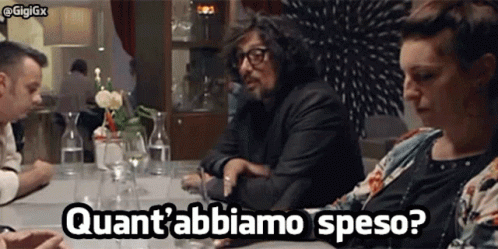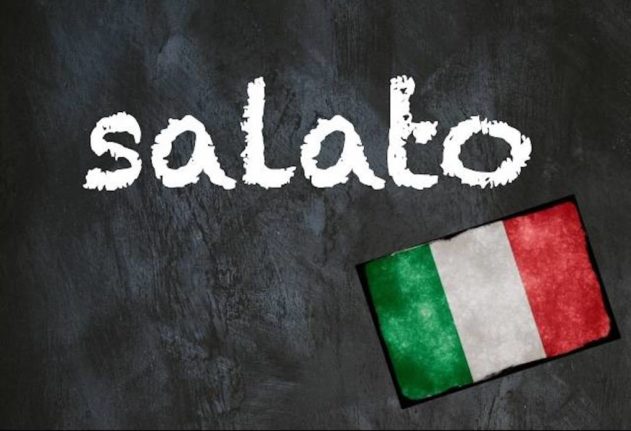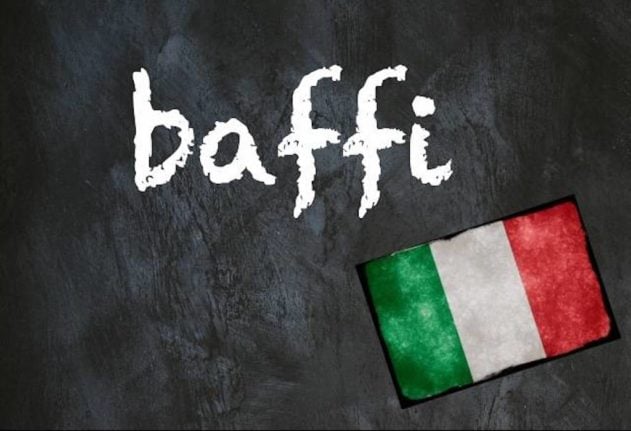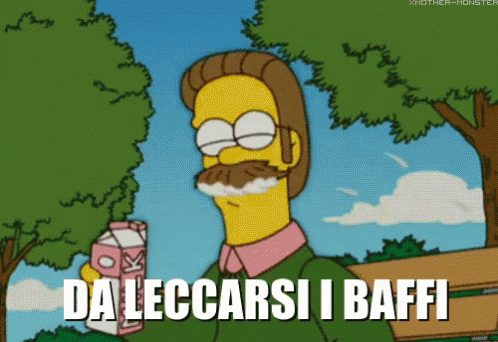Salato/a/i/e is a word you’ll come across early on in your Italian language journey if you enjoy cooking (or eating): it means salty or savoury, from sale, salt.
A torta salata, for example, is a ‘savoury cake’ – that is, a pie.
– Com’è il sugo?
– È un po’ troppo salato.
– How’s the sauce?
– It’s a little too salty.
Sto preparando una torta salata di ricotta e spinaci per la festa.
I’m making a ricotta and spinach pie for the party.
But you won’t just hear the adjective used to describe food.
Tune into an episode of Quattro Ristoranti, in which four restauranteurs rate each other’s establishments under the guidance of celebrity chef Alessandro Borghese, and you’ll often hear people complain that the bill is troppo salato (too high).

That’s because salato also means excessively high or pricey.
Non parcheggio lì, l’ultima volta mi hanno fatto una multa salata.
I’m not parking there, the last time they gave me a steep fine.
Il conto è estremamente salato rispetto alle nostre aspettative.
The bill is much higher than we were expecting.
How did the word salty come to mean steep or expensive?
Salt used to carry a very high price, with entire wars being fought over the “white gold”.
Back in ancient Roman times, salt was such a sought-after commodity that an allowance was known in Latin as a salarium, or salt-money, which is where we get the word salary (in Italian, salario) from today.
Some sources even say that Roman soldiers were at least partly paid their salarium in salt, though others dispute this as a myth.
The high prices that salt commanded in the marketplace meant that salato was a natural synonym for costly, and it retained this meaning even after salt became the everyday item it is today.
Just make sure you don’t confuse salato/a/i/e with the past participle of salire, to increase or rise, which takes essere as its auxiliary verb and is often seen in similar contexts.
Gli affitti sono saliti del 25% nell’ultimo anno.
Rents have risen 25% in the past year.
Non faccio acquisti da Andrea, i suoi prezzi sono salatissimi.
I don’t shop at Andrea’s, his prices are very expensive.
Do you have a favourite Italian word you’d like us to feature? If so, please email us with your suggestion.
Don’t miss any of our Italian words and expressions of the day by downloading our new app (available on Apple and Android) and then selecting the Italian Word of the Day in your Notification options via the User button.




 Please whitelist us to continue reading.
Please whitelist us to continue reading.
Apropos of high salt prices, the people of Florence stopped using salt in their bread because the taxes on salt from Pisa made it too expensive. This led to Dante’s poignant comment that in exile, “You shall find out how salt is the taste of another man’s bread, and how hard is the way up and down another man’s stairs.”